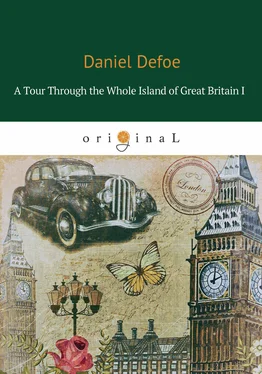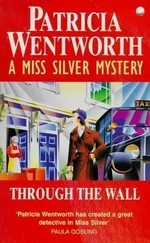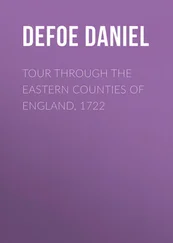Being obliged to come thus far into the uplands, as above, I made it my road to pass thro’ Witham, a pleasant well situated market-town, in which, and in its neighbourhood, there are as many gentlemen of good fortunes, and families, as I believe can be met with in so narrow a compass in any of the three counties, of which I make this circuit.
In the town of Witham dwells the Lord Pasely, eldest son of the Earl of Abercorne of Ireland, (a branch of the noble family of Hamilton, in Scotland :) His Lordship has a small, but a neat well built new house, and is finishing his gardens in such a manner, as few in that part of England will exceed them.
Nearer Chelmsford, hard by Boreham, lives the Lord Viscount Barrington, who tho’ not born to the title, or estate, or name which he now possesses, had the honour to be twice made heir to the estates of gentlemen, not at all related to him, at least one of them, as is very much to his honour mention’d in his patent of creation. His name was Shute, his uncle a linnen draper in London, and serv’d sheriff of the said city, in very troublesome times. He chang’d the name of Shute, for that of Barrington, by an Act of Parliament, obtain’d for that purpose, and had the dignity of a baron of the kingdom of Ireland conferr’d on him by the favour of King GEORGE. His lordship is a Dissenter, and seems to love retirement. He was a Member of Parliament for the town of Berwick upon Tweed.
On the other side of Witham, at Fauburn, an antient mansion house, built by the Romans, lives Mr. Bullock, whose father married the daughter of that eminent citizen, Sir Josiah Child of Wansted, by whom she had three sons, the eldest enjoys the estate, which is considerable.
It is observable, that in this part of the country, there are several very considerable estates purchas’d, and now enjoy’d by citizens of London, merchants and tradesmen, as Mr. Western an iron merchant, near Kelvedon, Mr. Cresnor, a wholesale grocer, who was, a little before he died, nam’d for sheriff at Earls Coln, Mr. Olemus, a merchant at Braintree, Mr. Westcomb, near Malden, Sir Thomas Webster at Copthall, near Waltham, and several others.
I mention this, to observe how the present encrease of wealth in the city of London, spreads it self into the country, and plants families and fortunes, who in another age will equal the families of the antient gentry, who perhaps were bought out. I shall take notice of this in a general head, and when I have run thro’ all the counties, collect a list of the families of citizens and tradesmen thus established in the several counties, especially round London.
The product of all this part of the country is corn, as that of the marshy feeding grounds mention’d above, is grass, where their chief business is breeding of calves, which I need not say are the best and fattest, and the largest veal in England, if not in the world; and as an instance, I eat part of a veal or calf, fed by the late Sir Josiah Child at Wansted, the loyn of which weigh’d above 30 and the flesh exceeding white and fat.
From hence I went on to Colchester: The story of Kill Dane, which is told of the town of Kelvedon, three miles from Witham, namely, That this is the place where the massacre of the Danes was begun by the women, and that therefore it was call’d Kill-Dane. I say of it, as we generally say of improbable news, it wants confirmation. The true name of the town is Kelvedon, and has been so for many hundred years. Neither does Mr. Camden, or any other writer I meet with worth naming, insist on this piece of empty tradition, the town is commonly called Keldon.
COLCHESTER is an antient Corporation; the town is large, very populous; the streets fair and beautiful; and tho’ it may not be said to be finely built, yet there are abundance of very good and well-built houses in it: It still mourns, in the ruins of a civil war; during which, or rather after the heat of the war was over, it suffer’d a severe siege; which, the garrison making a resolute defence, was turn’d into a blockade, in which the garrison and inhabitants also, suffered the utmost extremity of hunger, and were at last oblig’d to surrender at discretion, when their two chief officers, Sir Charles Lucas, and Sir George Lisle, were shot to death under the castle-wall. The inhabitants had a tradition, that no grass would grow upon the spot where the blood of those two gallant gentlemen was spilt; and they shewM the place bare of grass for many years, but whether for this reason, I will not affirm; the story is now dropp’d, and the grass, I suppose, grows there as in other places.
However, the batter’d walls, the breaches in the turrets, and the ruin’d churches still remain, except that the church of St. Mary’s (where they had the royal fort) is rebuilt; but the steeple, which was two thirds batter’d down, because the besieged had a large culverine upon it, that did much execution, remains still in that condition.
There is another church which bears the marks of those times, namely, on the south-side of the town, in the way to the Hithe, of which more hereafter.
The lines of contravallation, with the forts built by the besiegers, and which surrounded the whole town, remain very visible in many places; but the chief of them are demolish’d.
The River Coln, which passes through this town, compasses it on the north and east-sides, and serv’d in those times for a compleat defence on those sides. They have three bridges over it, one called North-Bridge, at the north gate, by which the road leads into Suffolk; one call’d East-Bridge, at the foot of the High Street, over which lies the road to Harwich; and one at the Hithe, as above.
The river is navigable within three miles of the town for ships of large burthen; a little lower it may receive even a royal navy: And up to that part called the Hithe, close to the houses, it is navigable for hoys and small barks. This Hithe is a long street, passing from west to east, on the south-side of the town; at the west-end of it, there is a small intermission of the buildings, but not much; and towards the river it is very populous; (it may be call’d the Wapping of Colchester;) there is one church in that part of the town, a large key by the river, and a good custom-house.
The town may be said chiefly to subsist by the trade of making bays, which is known over most of the trading parts of Europe, by the name of Colchester bays, tho’ indeed all the towns round carry on the same trade, namely, Kelvedon, Wittham, Coggshall, Braintree, Bocking, &c. and the whole county, large as it is, may be said to be employ’d, and in part maintain’d, by the spinning of wool for the bay trade of Colchester, and its adjacent towns. The account of the siege, anno 1648, with a DIARY of the most remarkable passages, are as follows, which I had from so good a hand, as that I have no reason to question its being a true relation.
A Diary
or, An Account of the Siege and Blockade of Colchester
An. 1648
On the 4th of June, we were alarm’d in the town of Colchester, that the Lord Goring, the Lord Capel, and a body of 2000 of the Loyal Party, who had been in arms in Kent, having left a great body of an army in possession of Rochester Bridge, where they resolv’d to fight the Lord Fairfax, and the Parliament army; had given the said General Fairfax the slip, and having pass’d the Thames at Greenwich, were come to Stratford, and were advancing this way: Upon which news, Sir Charles Lucas, Sir George Lisle, Col. Cook, and several gentlemen of the Loyal army, and all that had commissions from the king, with a gallant appearance of gentlemen voluntiers, drew together from all parts of the country, to join with them.
The 8th, we were further informed, that they were ad vane’d to Chelmsford, to New Hall House, and to Witham; and the 9th, some of the horse arriv’d in the town, taking possession of the gates, and having ingeneers with them, told us, that General Goring had resolv’d to make this town his head quarters, and would cause it to be well fortified; they also caused the drums to beat for voluntiers; and a good number of the poor bay-weavers, and such-like people, wanting employment, listed: So that they compleated Sir Charles Lucas’s regiment, which was but thin, to near 800 men.
Читать дальше












